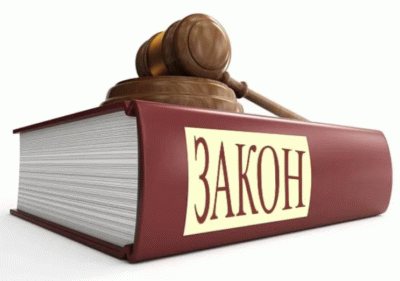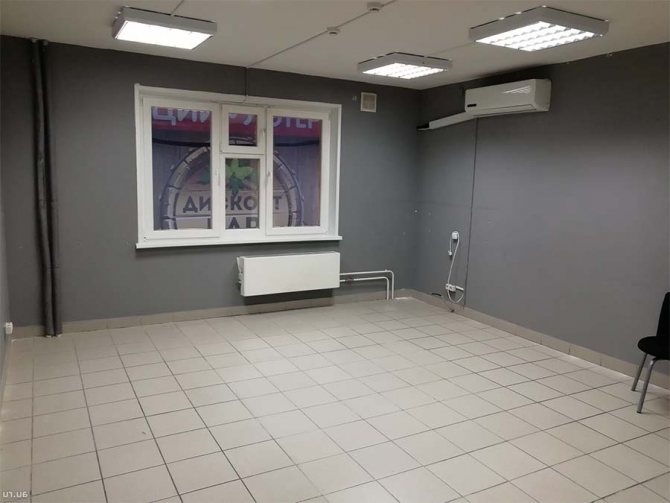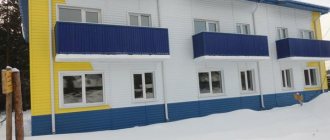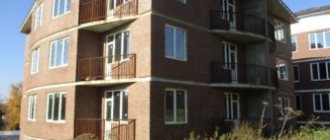The development of residential areas with multi-apartment buildings (MABs) is always associated with the organization of infrastructure. This is what led to the development of residential building projects with ground floor areas for convenience stores, hairdressers, consumer services, libraries, catering and much more. With the development of entrepreneurship, the demand for premises increased sharply and apartments on the ground floor began to be actively purchased. The scope of their use has also expanded.
It would seem that everything is simple, the apartment is owned and there should not be any legal problems. But everything is not as simple as it seems at first glance. What objects in a residential building are classified as non-residential? What responsibility do the owners bear, and how are the issues of using the common property of apartment buildings regulated? We will try to provide answers to all pressing questions.
Definition of non-residential premises according to the Housing Code of the Russian Federation
From the norms established by Chapter 3 of the Housing Code of the Russian Federation, it follows that premises in an apartment building are considered non-residential if they are not suitable for living. These areas meet the requirements for use for commercial, social or community activities.
According to the Decree of the Government of the Russian Federation No. 354 “On the provision of utility services to owners and users of premises in apartment buildings and residential buildings,” information about real estate must be contained in the technical documentation of the apartment building. Non-residential premises should not violate the architectural appearance of the facility in which it is located.
Classification of areas and their characteristics
Free - what is it?
In order to expand the possible areas of use of real estate, you can give it the status of non-residential premises for free use. Such facilities are operated by owners and tenants in various areas of activity, with the exception of specialized ones.
The intended purpose of the property often becomes known at the time of design, but for the owner the best option is to create a universal structure . Such a building can be repurposed at the request of the tenant. Often non-residential premises for free purposes are used as shopping centers, offices, household or social enterprises.
Free-use premises, despite their multifunctionality, cannot be fully suitable for all areas of activity. Given the specifics of the institution’s work, in some cases additional documentary approvals will be required.
Residential

According to Law No. 218-FZ, Article 8, Part 5, Clauses 9, 10, 11, the Unified State Register includes additional information about the purpose of the building, premises, and its name. When registering for cadastral registration, only basic information about the property changes; regarding changes in purpose, you should be guided by the Housing Code of the Russian Federation (Chapter 4). It is important that changing the purpose of a room in a building does not entail a change in the building itself (for example, a residential premises, a non-residential building).
In this regard, authorized state bodies send information about changing the purpose of non-residential premises to the Unified State Register of Real Estate for inclusion of such information in the register (Law No. 218-FZ, Article 32, Part 1).
Law 221-FZ of July 24, 2007 “On the State Real Estate Cadastre” includes information about the type of real estate (non-residential or residential building), as well as its purpose (residential, non-residential premises). This information is also recorded in the certificate of state registration of ownership.
This is important to know: Canopies over the entrances of apartment buildings
Read more about the classification of non-residential premises here.
Intended use of real estate not intended for residential use
The purposes for using non-residential space in residential buildings are clearly stated in the documentation during registration. It is impossible to change a retail outlet to a dental office without re-registration.
Sanctions for inappropriate use include:
- a fine of 1000 to 1500 rubles and an order to eliminate the violation within a strictly established time frame;
- refusal to legitimize unauthorized buildings and reconstructions.
In cases of conducting unregistered or unauthorized activities, the organization faces closure or a ban on conducting activities, by a court decision.
SNT Vinogradovo portal
In addition, by giving SNT owners the right to transfer residential buildings into garden houses, and garden houses into residential buildings, the law only indicates that this transition can be carried out in the manner prescribed by the Government of the Russian Federation.”
To register in a residential building located on the territory of SNT, today it is necessary to have in hand a court decision stating that the residential building erected on the site belongs to a capital construction project and is suitable for permanent residence. In other words, the state does not recognize a record of the type building “Residential House” in the duly registered title document for this house.
Who can occupy non-residential premises and what requirements must be met?
Non-residential premises can be used by the owner or rented out under a lease agreement. The owner is responsible for the condition and rules of its operation. In the case of a lease, responsibility remains with the tenant. The organization occupying the area of the apartment building is obliged to fulfill the following requirements:
- Provide a separate entrance. The entrance roof should not exceed the height of the second floor floor.
- Allow repair workers to access common building systems and communications during repairs. Notify housekeeping workers about the need for unscheduled repairs.
- Do not exceed the permissible noise level. Carry out noisy work only at specified times.
- Load and unload goods and equipment in places where there are no windows.
According to the Housing Code of the Russian Federation, non-residential objects can only occupy the area of the first floor. Apartments on the second floor can also be used as non-residential real estate, but provided that the entire first floor of the building has already been given over to the needs of various organizations. Areas not intended for residential use cannot be located either next to residential apartments or above them.
When complaints are received from residents about violations of sanitary and epidemiological standards, a court decision may order the payment of moral compensation to the injured party.

Technical requirements for non-residential premises and the use of these facilities
In areas where people do not live, the availability of all utilities is not necessary. There may be no gas supply or bathroom if they are not needed to organize the declared activity. One of the main conditions is compliance with fire and sanitary safety standards.
The premises must have a technical plan approved in accordance with the established procedure. Restructuring and redevelopment to suit the needs of the organization must be coordinated and not pose a danger to residents.
Is it possible to register at the dacha
Since 2013, the law has allowed registration in country houses. However, certain conditions must be met. The commissions have certain requirements for such housing:
This is important to know: Is there a fine for remodeling an apartment without permission, should I pay the fine or not?
- presence of a capital foundation;
- absence of mechanical damage in the walls;
- the degree of waterproofing allows you to maintain an inside temperature of 18 degrees and a humidity level of at least 80%;
- compliance with sanitary conditions when installing communication systems;
- compliance with solar lighting standards in interior spaces;
- registration of the object in Rosreestr.
- permission to use the land area for gardening has been documented;
- The land plot is located within the boundaries of a populated area.
The entire list of items is mandatory to recognize a house as suitable for year-round living. True, this is not enough to obtain registration.
In addition to the requirements for suitability for habitation, the site itself must comply with a number of standards:
Registration is prohibited on premises on agricultural lands.
Is the common property in the house non-residential premises?
Common property: staircases, basements, attics are not considered non-residential premises. This is the common property of apartment owners, performing a specific function. Commercial activities cannot be conducted in these areas without special registration. An exception is utility rooms and utility rooms for utility workers, if they are hired by a homeowners association (HOA) and are equipped accordingly.
Non-residential premises of apartment buildings include underground parking for vehicles.
How to manage non-residential premises in an apartment building
Owners of real estate in apartment buildings that are not intended for residential use are not parties to the agreement between the apartment owners and the management organization (MC). They must independently register with utility organizations and sign an agreement with them.
If the owners of non-residential premises for some reason have not concluded an agreement with utility organizations, then the head of the management company or the chairman of the HOA must report the availability and quantity of non-residential premises to the relevant resource supply and service organizations.
Non-residential building residential structure legal content of the concept
It follows from the norm of subparagraph 2 of paragraph 1 of Article 220 of the Code that a property tax deduction is provided to the taxpayer when he purchases a residential building, and not a residential building.
Based on the above, there are no grounds for applying the property tax deduction provided for in subparagraph 2 of paragraph 1 of Article 220 of the Code for the acquisition (construction) of a residential building until the structure is recognized as a residential building. As we see, the legislator in this case uses the concept of non-residential premises in a narrow sense, extending it only to premises located in residential buildings.
A broader understanding of this term is characteristic of the Federal Law of July 21, 1997.
Utilities and maintenance
It is the responsibility of the owner of non-residential premises to maintain it in proper condition. Payment for utilities is carried out according to meters or according to standards. Expenses for the common property of the house are distributed equally with the owners of the apartments, in proportion to the occupied area. The argument that there is no agreement with the management company will work.
All owners, regardless of the status of the premises occupied, use common areas and adjacent areas. This means they are the owners of a share of the common areas and bear responsibility and expenses for their maintenance.
An apartment building may contain non-residential premises. In many cases this is even convenient. For example, a grocery store in the immediate vicinity or a children's development club for a child. Russian legislation provides for standards for the placement of commercial and other real estate in residential buildings. Activities are permitted that can be carried out according to the rules, without disturbing the comfort and everyday interests of residents. The owner or tenant is responsible for fire and sanitary safety.
Residents of an apartment building have the right to file a complaint with Rospotrebnadzor, the State Housing Inspectorate, the police or the local administration if the activity poses a threat to peace or infringes on their rights or interests. If the procedure for operating non-residential premises in an apartment building is not followed, you may incur serious expenses and receive an order to cease activity.
Is there a penalty for registration?
The LLC owns, by right of ownership, non-residential premises in the basement of an apartment building. Previously used as an office, but due to the LLC moving to another location.
The implementation by an individual of entrepreneurial activity without state registration, depending on the circumstances, may be the basis for bringing him to administrative (Part 1 of Article 14.1 of the Code of Administrative Offenses of the Russian Federation) or criminal (Article 171 of the Criminal Code of the Russian Federation) liability.
Not all beginning entrepreneurs have the opportunity to buy or at least rent an office or industrial premises. The question arises: is it possible to carry out business activities at the place of residence?
Dear readers! Our articles talk about typical ways to resolve legal issues, but each case is unique.
Landings and staircase openings, corridors, vestibules, passages must be free for possible evacuation in the event of a fire, natural disaster or emergency. Penetration into the specified buildings or structures can also be carried out when the culprit removes stolen items without entering the corresponding premises. When qualifying the actions of a person who has committed theft, robbery or robbery on the basis of “illegal entry into a home,” courts should be guided by the note to Article 139 of the Criminal Code of the Russian Federation, which explains the concept of “dwelling,” and Note 3 to Article 158 of the Criminal Code of the Russian Federation, which explains the concepts of “room” and “storage” (clause 18).
The use of residential and non-residential premises by those living in the house, as well as common areas, is carried out taking into account the fire safety requirements in the Russian Federation, approved by the order of the Ministry of Emergency Situations of Russia dated June 18, 2003.
No. 313. Today, neither the Housing Code of the Russian Federation nor other regulations in the field of housing legislation contain a list of types of business activities that are allowed to be carried out in residential premises without transferring them to non-residential premises.
This is important to know: Payment for common house needs in an apartment building in 2020










